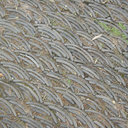Evaluation of in vitro inhibition and induction of cytochrome P450 activities by hydrolyzed ginkgolides.
Keywords
Abstract
UNASSIGNED
The extracts of Ginkgo biloba leaves are effective in treating cerebral infarction, of which ginkgolides have been demonstrated to be the active ingredients. The purpose of this study was to determine whether hydrolyzed ginkgolides would cause potential drug-drug interactions (DDI) during its clinical use via inhibition or induction of the major human cytochrome P450s (CYPs).
METHODS
The inhibition (direct and metabolism-dependent inhibiton on CYP activities) and induction (mRNA expression level and activity of CYPs) by the hydrolyzed ginkgolides were evaluated in human liver microsomes and cryopreserved human hepatocytes, respectively.
RESULTS
Within 0.1 to 10μg/mL, the hydrolyzed ginkgolides showed negligible direct inhibition against CYP1A2, 2B6, 2C8, 2C9, 2C19, 2D6, 2E1, 3A4m (midazolam as substrate) and 3A4t (testosterone as substrate), with IC50 values determined to be >10μg/mL (concentrations expressed as the sum of equivalent concentrations of ginkgolide A, B and K). For the metabolism-dependent inhibition studies, the preincubation of 30min did not substantially alter the IC50 values when compared with the corresponding values in the direct inhibition studies. The activities and mRNA expression levels for CYP1A2 and 2B6 within each drug-treated group (0.1, 1 and 10μg/mL) were not affected after the 48-h incubation. For CYP3A4, the activity and mRNA expression level were not altered when incubated with 0.1 and 1μg/mL of hydrolyzed ginkgolides. When incubated with hydrolyzed ginkgolides at 10μg/mL, the relative activity and relative mRNA expression level of CYP3A4 remarkably increased to 4.59±3.67 and 17.2±9.16-fold of the corresponding vehicle control values, respectively.
CONCLUSIONS
The hydrolyzed ginkgolides is not likely to cause DDI via inhibition of the major human CYPs. However, the CYP3A4 induction might be clinically relevant.


